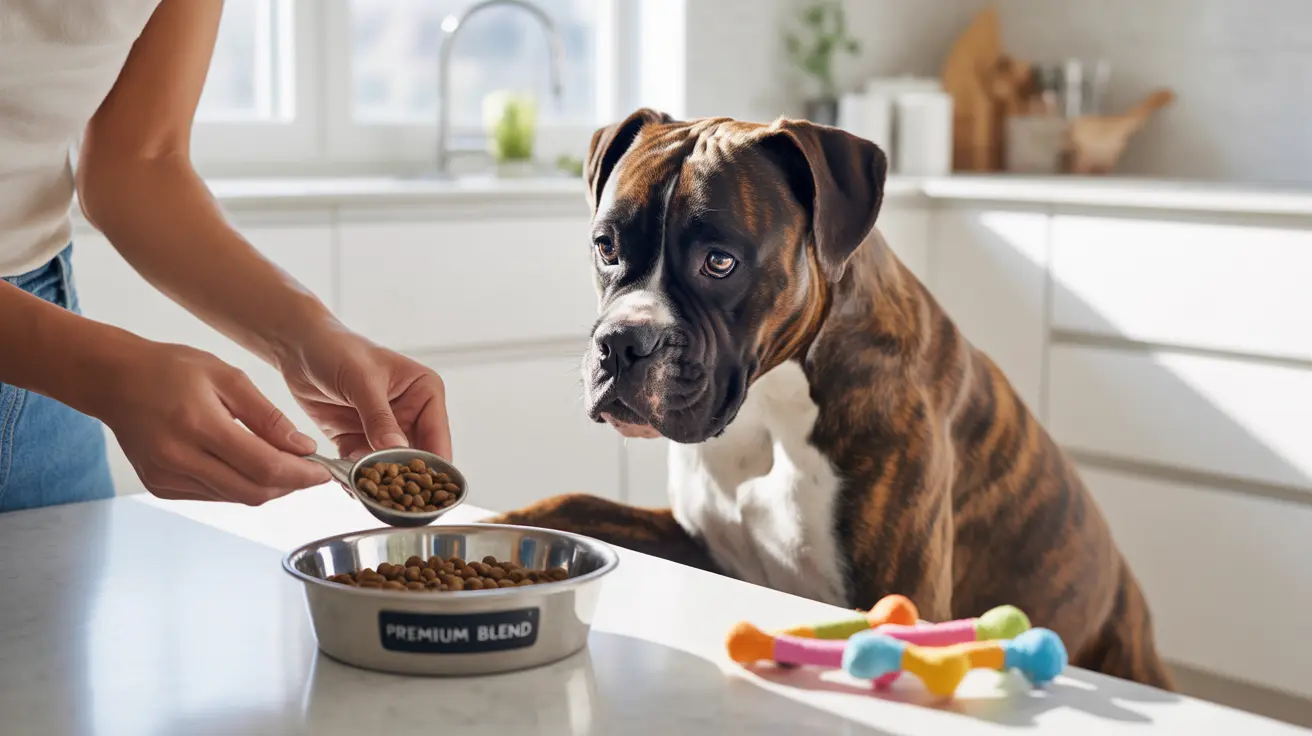Compreender quantas calorias meu cachorro precisa diariamente é fundamental para manter a saúde do animal e prevenir problemas relacionados ao peso. Embora a dúvida “quantas calorias meu cachorro precisa?” pareça simples, a resposta varia muito conforme o porte, idade, nível de atividade e o estado geral de saúde.
Neste guia completo, vamos detalhar tudo o que você precisa saber para calcular e gerenciar a quantidade diária ideal para cães, ajudando você a tomar decisões informadas sobre a alimentação equilibrada para cães e a importância do peso ideal no cachorro.
Entendendo a Necessidade Calórica Básica
O ponto de partida para calcular a necessidade calórica de cachorro adulto é o Requerimento Energético de Repouso (RER). Esse cálculo básico representa as calorias necessárias para manter as funções vitais do corpo do cachorro quando ele está em repouso.
Para cães adultos, a fórmula é: RER = (Peso do cão em kg ^ 0,75) × 70. Esse valor inicial ainda deve ser ajustado de acordo com diversos fatores que influenciam calorias para cães.
Fatores Que Influenciam as Calorias para Cães
Idade e Fase da Vida
Calorias para cachorro filhote: filhotes precisam de até três vezes mais calorias por quilo do que cães adultos, devido ao rápido crescimento e alta energia. Já as calorias para cachorro idoso tendem a ser menores – cães idosos geralmente demandam menos energia, pois o metabolismo desacelera e a atividade diminui.
Porte e Considerações de Raça
Além da diferença calórica por raça de cachorro, cães de porte grande precisam de mais calorias no geral, mas raças pequenas frequentemente necessitam de mais calorias por quilo por causa do metabolismo acelerado. Exemplos de calorias por porte do cachorro:
- Cachorros pequenos (4,5 kg): 200-275 calorias diárias
- Cachorros médios (13,5 kg): 500-625 calorias diárias
- Cachorros grandes (32 kg): 900-1.050 calorias diárias
Nível de Atividade e Estilo de Vida
As calorias para cachorro ativo, como cães de trabalho, raças atléticas e muito brincalhonas, podem ser de duas a cinco vezes maiores do que para cães mais tranquilos. Já a alimentação para cães pouco ativos ou que passam mais tempo em casa requer menos calorias, para evitar obesidade em cães.
Como Calcular a Quantidade de Calorias do Cachorro
Se você quer saber como calcular calorias para cães de forma precisa, siga este passo a passo do cálculo energético para cães:
- Calcule o RER usando a fórmula acima
- Multiplique pelo fator de atividade adequado:
- Adulto castrado: 1,6
- Adulto não castrado: 1,8
- Cão ativo ou de trabalho: 2,0-5,0
- Perda de peso: 1,0
Com isso, você chega à quantidade diária ideal para cães levando em conta fatores como idade, porte e nível de atividade.
Monitorando e Ajustando a Alimentação do Cachorro
Monitorar peso do cachorro, avaliar a condição corporal e observar o comportamento são essenciais para saber se o animal está recebendo as calorias certas. Sinais de que pode ser hora de como ajustar alimentação do cachorro incluem:
- Ganho ou perda de peso visíveis
- Mudanças no nível de energia
- Costelas muito visíveis ou impossíveis de sentir
- Alteração no apetite
Assim, é possível como saber se cachorro está comendo certo e evitar problemas como o excesso de peso.
Perguntas Frequentes
Como calcular a quantidade de calorias que meu cachorro precisa por dia?
O cálculo deve considerar peso, idade, nível de atividade e fatores específicos do animal. Usa-se uma fórmula para obter a necessidade básica e multiplica-se por um fator de atividade.
Quais fatores influenciam a necessidade calórica de um cão?
Idade, porte, raça, nível de atividade, condição de saúde e estágio (filhote, adulto, idoso) influenciam diretamente a necessidade calórica.
Como a atividade física do cachorro muda sua necessidade de calorias?
Cães mais ativos precisam de mais calorias para manter energia, enquanto cães sedentários demandam menos calorias para evitar ganho de peso.
Cães filhotes e idosos têm necessidades calóricas diferentes?
Sim. Filhotes precisam de mais calorias proporcionalmente ao peso devido ao crescimento. Idosos geralmente requerem menos por terem metabolismo mais lento.
Como monitorar se meu cachorro está recebendo a quantidade certa de calorias?
Acompanhe o peso, condição corporal e energia do animal, ajustando a alimentação conforme necessário com base nessas observações.
O que pode acontecer se meu cachorro consumir calorias em excesso?
Pode causar obesidade, doenças articulares, problemas cardíacos e redução da qualidade de vida do animal.
Como ajustar a alimentação do cachorro em fases de pouca ou muita atividade?
Reduza as calorias em períodos menos ativos e aumente se houver mais estímulo físico, sempre observando sinais de ganho ou perda de peso.
Mudanças de ração podem afetar as calorias ingeridas?
Sim. Raçoes diferentes têm valores energéticos distintos, então é importante ajustar a quantidade conforme a nova tabela nutricional.
Existe uma tabela de calorias recomendadas para porte de cães?
Sim, tabelas sugerem faixas calóricas baseadas em peso e porte, mas é fundamental personalizar considerando fatores individuais.
Por que é importante consultar um veterinário ao ajustar a dieta do cachorro?
O veterinário pode orientar a necessidade ideal de calorias conforme saúde, raça, idade e condição corporal, prevenindo riscos à saúde do animal.
Lembre-se: essas orientações são um ponto de partida, pois cada cachorro pode precisar de mais ou menos calorias de acordo com suas características. Sempre consulte um veterinário para orientação personalizada sobre alimentação equilibrada para cães, como calcular ração do cachorro e interpretar tabela nutricional canina, garantindo a saúde e o bem-estar do seu melhor amigo.






